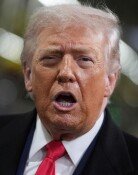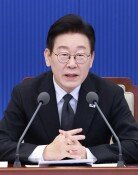Seoul-Beijing-Tokyo foreign ministerial meeting ends without even joint statement
Seoul-Beijing-Tokyo foreign ministerial meeting ends without even joint statement
Posted November. 28, 2023 07:56,
Updated November. 28, 2023 07:56
Foreign ministers of South Korea, China, and Japan – Park Jin, Wang Yi, and Yoko Kamikawa – met together for the first time in four years and three months in Busan on Sunday to discuss a trilateral summit but failed to finalize specific schedule other than a basic agreement to quickly recover trilateral cooperation. A joint press conference or dinner, which is customarily held for previous trilateral foreign ministerial meetings, did not take place as the Chinese foreign minister returned to his home immediately after the meeting. The three countries' foreign ministers individually announced the meeting results without making a joint statement.
The key agenda of the meeting was to recover a trilateral summit, which has been suspended for four years. At the September Senior Officials Meeting held in Seoul, the three countries agreed to hold a trilateral meeting “at the earliest mutually convenient time.” The South Korean government expected improvement in its relationship with China with a trilateral summit attended by Chinese Premier Li Qiang to be held in 2023 and Chinese President Xi Jinping’s visit to take place in early next year. However, China did not suggest any plan or schedule for a trilateral summit during the foreign ministerial meeting.
Such an attitude of China might be the reflection of its internal changes due to its changed relations with the U.S. China tried to pull South Korea and Japan away from the U.S. until recently as South Korea, Japan, and the U.S. got closer to each other while intensifying competition between the U.S. and China. However, as bilateral relations show signs of improvement following a U.S.-China summit, the country seems less in a hurry. It seems to be implementing the “push-and-pull” foreign tactics by encouraging competition and enmity among neighboring countries. During the foreign ministerial meeting, China expressed its discomfort with the close ties between South Korea, the U.S., and Japan and requested its neighboring countries to jointly resist the tendency of politicizing economic issues, instrumentalizing science and technology issues, and securitizing trade issues.
China will likely try to maintain the status quo with South Korea and Japan while focusing on its relationship with the U.S. A trilateral meeting between the Asian countries is unlikely to occur this year. It is hard to predict when Chinese President Xi will visit South Korea. There is no need for South Korea to be hung up on China, but neither should it sit on its hands. As the country is facing a lot of destabilizing factors, such as North Korea’s threats against it and a military agreement between the North and Russia, and is highly dependent on China on the economic front, South Korea should prepare for the uncertainties of economic security. As there is a sign of improvement between the U.S. and China, the South Korean government should also strengthen communication with China to build a foundation for cooperation and broaden the scope of its diplomatic activities.







